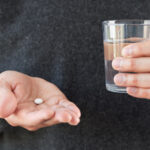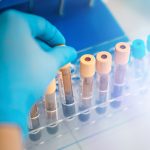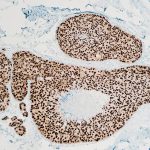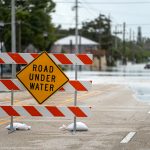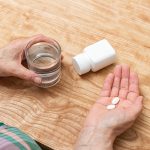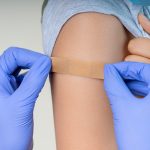-
July 3: The Week in Cancer News
Uterine cancer diagnoses expected to climb in the next 25 years, and some disposable e-cigarettes emit more carcinogens than traditional cigarettes.
by Thomas Celona
-
June 27: The Week in Cancer News
Low-dose aspirin reduces cancer risk for people with Lynch syndrome, and breast cancer survivors may have lower risk for Alzheimer’s than the general public.
by Thomas Celona
-
June 20: The Week in Cancer News
Surgery to remove fallopian tubes can lower ovarian cancer risk, and NIH staff cuts lead to delays for patients with no other treatment options.
by Eric Fitzsimmons
-
June 13: The Week in Cancer News
Researchers explore the causes of lung cancer in never-smokers, and findings support start to colonoscopy screening at age 45.
by Marci A. Landsmann
-
June 6: The Week in Cancer News
A blood test can detect breast cancer drug resistance, and a combination treatment improves outcomes in colorectal cancer.
by Kevin McLaughlin
-
May 30: The Week in Cancer News
AI can help doctors determine which breast cancer patients qualify for targeted therapy, and cancer deaths among women have increased with rising temperatures in some countries.
by Thomas Celona
-
May 23: The Week in Cancer News
Disasters present a threat to cancer care, and understanding prostate cancer screening recommendations after President Joe Biden’s diagnosis.
by Eric Fitzsimmons
-
May 16: The Week in Cancer News
Study examines benefit of PARP inhibitors before surgery in BRCA-related breast cancer, and exercise improves sexual function after prostate cancer treatment.
by Marci A. Landsmann
-
May 9: The Week in Cancer News
A single dose of HPV vaccine is highly effective, and not all cancers are increasing in people under 50.
by Kevin McLaughlin
-
May 2: The Week in Cancer News
Immunotherapy may treat some early-stage cancer patients without the need for surgery, and exercise found to counter many side effects of cancer treatment.
by Eric Fitzsimmons
Cancer Talk
Physical Activity Linked to Lower Colon Cancer Recurrence
Participating in a structured exercise program after treatment was associated with a reduced risk of recurrence in people who had colon cancer.
by Sandra Gordon
Gaps in Survivorship Care Leave Unmet Needs After Cancer TreatmentA survey of head and neck cancer survivors reveals that many are not getting adequate survivorship care and may not even know it is available.
by Cameron Walker
Improving Communication for Deaf Cancer PatientsAfter a cancer diagnosis, people who are deaf or have hearing problems can struggle if accommodations don’t meet their communication needs.
by Eric Fitzsimmons
Is Immunotherapy Right for People Hospitalized With Advanced Cancer?Researchers find no evidence that immune checkpoint inhibitors benefit cancer patients getting inpatient care. They urge earlier consideration of palliative care.
by Kyle Bagenstose


